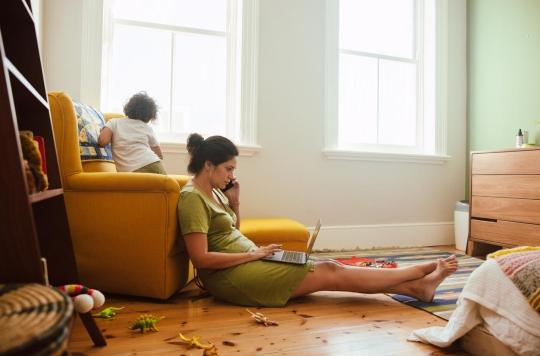Parents pick up several bad habits and negative behaviors when they constantly use their phones to relax.

- Less distressed caregivers were more likely to use digital devices to maintain social connections.
- Maintaining social connections was linked to lower levels of anxiety, depression and better parenting practices, such as listening to children.
Spending time in front of screens is not just a problem for children. And for good reason, adults who constantly use their smartphone to relax tend to become bad parents. This was revealed by scientists from the University of Waterloo in Canada. In order to reach this conclusion, they carried out work published in the journal Computers in Human Behavior.
“In the context of an interconnected family, the use of digital devices by caregivers has significant implications for children’s development. This could be particularly important during the early months of the Covid-19 outbreak, when caregivers were more dependent on technology”, the researchers said.
549 caregivers
As part of this study, they examined the link between the use of digital devices, the mental health of caregivers and their parenting practices at the start of the pandemic. For this, they interviewed 549 caregivers, who had at least two children aged 5 to 18. Participants had to complete a questionnaire on their psychological distress, their ways of using digital devices, family functioning and their parenting practices.
“Lower quality parenting”
According to the authors, caregivers with higher levels of distress spent more time in front of screens and were more likely to turn to digital devices to relax.
“The intrusion of devices into interactions with family members and the use of media for relaxation purposes are associated with lower quality parenting,” can we read in the searches. According to the team, parents who used their phones to relax were more likely to yell at their children.
The authors expect these trends to continue after the pandemic. They plan to build on these findings and hope that their work will contribute to making recommendations that will help caregivers better manage their screen behaviors.

















